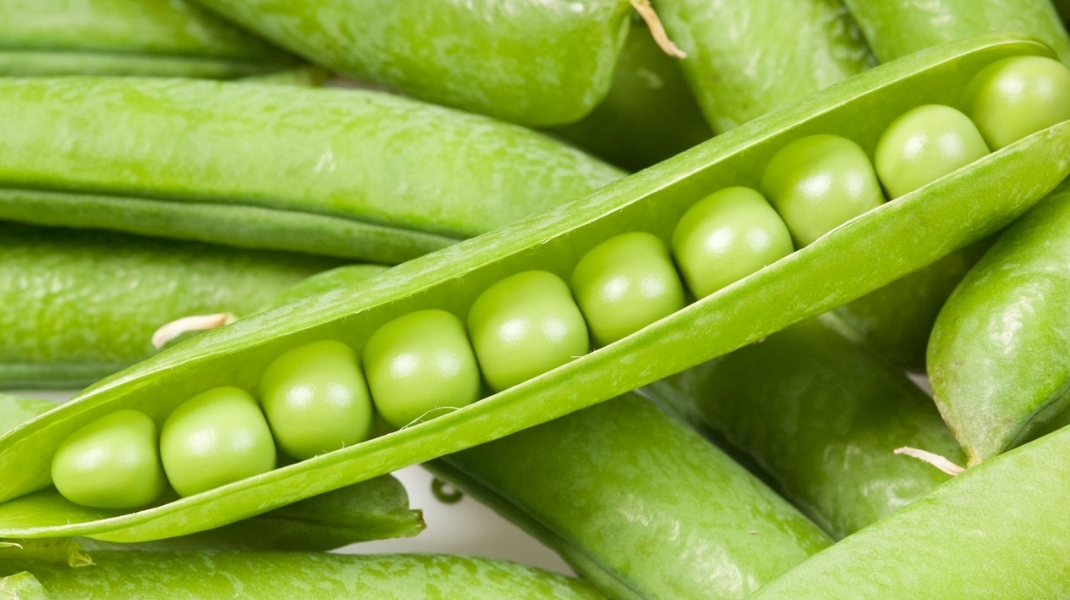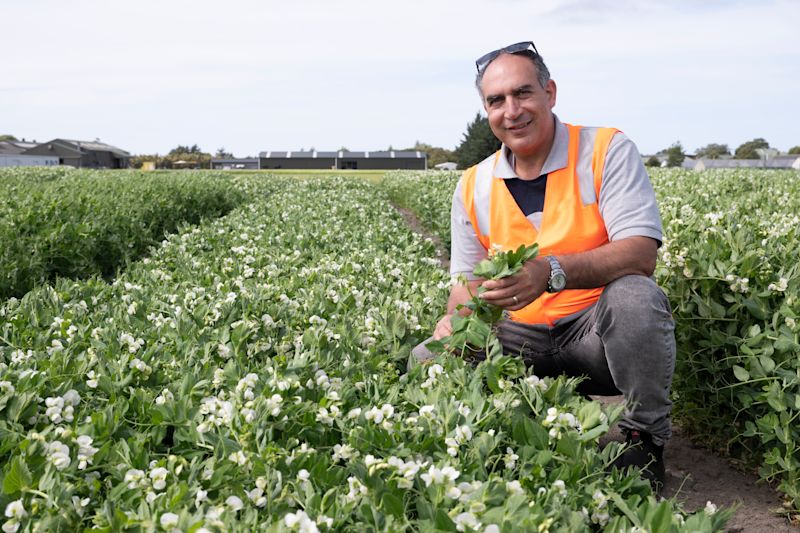Friday, 7 November 2025

Working with industry to breed the next generation of pea cultivars
In 2024 more than 73,000 tonnes of frozen peas with an export value of $166.9 million were sent to over 40 countries, making the crop New Zealand's third largest vegetable export.
The Bioeconomy Science Institute’s breeding programme based in Lincoln, Canterbury traces back to 1928, when field pea breeding trials were first formally established in New Zealand. With nearly 100 years of plant material and genetic information the programme is focused on developing new cultivars that consistently deliver high yields, perform well in extreme weather conditions, offer wider harvest windows and have improved disease resistance.
“Pea breeding has been shaped by generations of breeders, researchers, and technical staff whose work spans nearly a century,” says Bioeconomy Science Institute pea breeder Dr Ali Izanloo. “From the first trials in 1928 to today’s advanced breeding strategies, each generation of breeders has contributed to building a rich gene pool adapted to New Zealand’s growing conditions.”
With a science background in plant production and genetics Dr Izanloo spent years breeding wheat and saffron in Iran, two of the country’s most economically important crops. In 2022 Dr Izanloo brought his expertise to New Zealand, joining the Bioeconomy Science Institute.

Bioeconomy Science Institute pea breeder Ali Izanloo
The Bioeconomy Science Institute is globally recognised for its work in pea breeding, with over 40 field, garden and vining pea cultivars successfully developed to date. Since 1995 the institute’s breeding programme has been carried out in partnership with PGG Wrightson Seeds and Heinz-Watties, combining science-driven innovation with industry insight to ensure new varieties meet grower, processor, and market needs.
As well as frozen pea exports, New Zealand has produced and exported fresh market pea seed for over 100 years with historically markets in Europe and more recently northern Africa and Asia where fresh markets are increasing and the demand for new adaptable pea cultivars are keenly sought after. The Bioeconomy Science Institute’s programme has made considerable progress in this space, with new products now being evaluated in many of these developing markets.
“We’re working with industry to breed the next generation of pea cultivars that can stand up to climate change, support sustainable farming systems, and meet the rising global demand for plant-based, high-protein food,” says Dr Izanloo.
